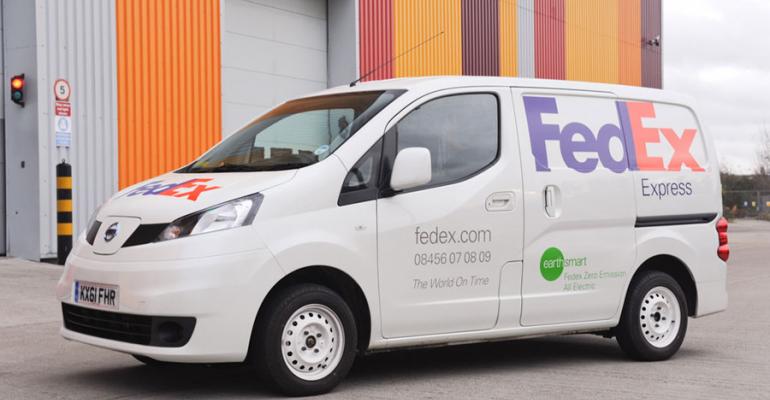Auto makers and the U.K. government need to offer long-term incentives and price cuts if they hope to create a sustainable market for ultra-low-emissions vans, the British Vehicle Rental and Leasing Assn. says.
The BVRLA comment follows a report commissioned by the Department for Transport concluding the ownership cost of all-electric large vans is more than 50% higher than their diesel-engine equivalents.
Examining the market potential for ultra-low-emission van technologies, including
pure-electric, plug-in hybrid and hydrogen fuel cells, the report also says 10% is the maximum cost-of-ownership premium van operators are willing to accept – with most unwilling to pay any more.
Using government oil-price projections, the report says electric vans still will have a 10% cost-of-ownership premium over diesel in 2030. By then, hydrogen fuel cell-powered vans likely will match diesel vans’ cost of ownership, but there will be concerns over the extent of hydrogen infrastructure.
The report’s authors warn the government that incentives such as grants for electric vans and the London congestion-charge exemption will need to be sustained to compensate for ultra-low-emissions van ownership costs remaining higher over the long term.
The report also calls on the government to introduce non-financial incentives including exclusive access to certain loading bays, extended delivery hours, use of bus lanes and relaxation of driver- and vehicle-licensing rules to take into account these vans’ lower payloads.
It also suggests van manufacturers should provide guaranteed buy-backs and fixed-price servicing to help lower the investment required to run the electric vehicles.
BVRLA CEO John Lewis calls the report a wake-up call for EV makers and the government.
“The government has put its money where its mouth is by delivering the plug-in van grant and other tax incentives, but they need to give operators confidence that these will be more than just short-term measures,” Lewis says in a statement.
“And van makers must join the party. Rather than relying on government grants to discount their vehicles, they need to produce some serious price cuts. Their current business model doesn’t work.”
The BVRLA wants van makers to follow up on a suggestion in the report that they investigate the business case for bringing more hybrid powertrains to market, particularly for smaller models, where the economics are much more favorable.
“The vehicle-rental and leasing industry is ready and waiting to step in and help create a sustainable market for ultra-low-emission vans, but fleets make decisions based on cost more than sentiment,” Lewis says.
Meanwhile, the Parliament’s select committee on transport plans to hold an inquiry into the potential for EVs to help decarbonize transport and the government’s actions to facilitate this.
Additionally, the committee says it is interested in the uptake of EVs and how this can be improved; the effectiveness of the U.K.’s “Plugged-in Places” recharging program; the role of EVs alongside other technologies to reduce carbon emissions from road transport; and actions taken by other countries to encourage EV use.





